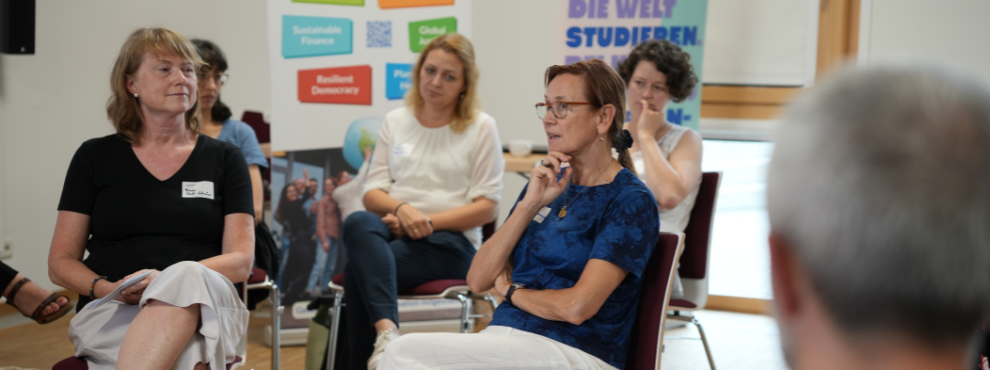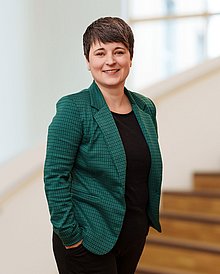Young scientists develop new approaches for sustainable healthcare
Young researchers from North Rhine-Westphalia came together for the Humboldtⁿ School at Witten/Herdecke University from 2 to 4 September 2024.

How can the healthcare system be designed to protect both people and the planet? This question was the focus of the interdisciplinary Humboldtⁿ Summer School at Witten/Herdecke University (UW/H) from 2 to 4 September 2024. International junior researchers from various universities in North Rhine-Westphalia met in Witten to develop innovative strategies for sustainable healthcare and healthier lifestyles under the motto "Planetary Health in NRW - Momentum for Change". The third Humboldtⁿ Summer School is part of the current Humboldtn annual theme "Climate change and health - areas of tension between adaptation, prevention and new challenges".
One of the main aims of the Summer School was to highlight the complex interactions within the system. A highlight of the event was therefore the lecture by Prof. Dr Petra Thürmann, Vice President for Research at UW/H, who impressively demonstrated how, for example, the common painkiller Diclofenac provides relief for humans but can be life-threatening for animals. Studies have shown that even small amounts of diclofenac in dead animals can be fatal for vultures that eat these animals. In India and Pakistan, these residues have almost led to the extinction of the vulture population, resulting in an increase in epidemics - the vultures were missing as natural disposers. "The harmful effects of pharmaceuticals on our ecosystems are currently hardly taken into consideration," says Prof Thürmann. "This makes it all the more important for us as researchers to raise awareness and develop solutions."
How the healthcare system can help combat the climate crisis
As the Summer School progressed, concrete approaches to reducing emissions in the healthcare sector and promoting sustainable practices were developed. Under the moderation of Dr Anne Caplan, Head of the Humboldtⁿ Centre, the participants discussed how hospitals and practices can reduce their emissions and what political regulations are required to do so. The researchers also took a look at everyday culture and jointly analysed the impact that nutrition, for example, has on the planet and how a better awareness of their own influence can be created in the population.
The last day of the Summer School was dedicated to collaboration in multidisciplinary teams and science communication. The (post-)doctoral students learnt how to communicate their research results in a way that is understandable to the general public and how to integrate sustainability aspects more strongly into their work. The insights gained should help to promote the transfer of knowledge to society.
Diversity of disciplines promotes innovative, scientifically sound solutions
A total of 16 young researchers from various disciplines such as medicine, psychology, landscape architecture, pharmacology, economics and spatial planning from the universities of Witten/Herdecke, Münster, Bonn, Aachen, Dortmund and Bochum took part. This diversity enabled a lively exchange from different perspectives and the development of innovative, interdisciplinary ideas for the young researchers' personal research projects.
Further information on Humboldtⁿ
The Humboldtⁿ initiative was founded in 2021 by the 16 universities in North Rhine-Westphalia together with the Wuppertal Institute for Climate, Environment and Energy to promote sustainability in the university landscape. It serves as a platform for pooling research and knowledge transfer and supports interdisciplinary cooperation to tackle the major challenges of our time.
Photos for download
Contact person

Lucy Mindnich, M. A.
Communications Officer
Administration | Communication & Marketing
Alfred-Herrhausen-Straße 48
58455 Witten
Room number: 2.F05
